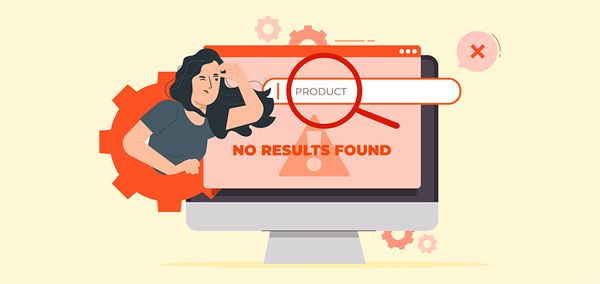Why Supplier Relationships Are So Important in Ecommerce

The quality of your supplier relationships directly impacts your bottom line. Good supplier relationships reduce costs, improve efficiency, and reduce supply chain disruptions. You may also enjoy perks like discounted rates and principal customer status.
The key to building these strong relationships is Supplier Relationship Management (SRM). SRM is an approach to supplier relationships based on open communication, trust, and a win-win mentality. It focuses on building partnerships with key suppliers that benefit both parties; a philosophy that Japanese companies like Toyota and Honda use to great effect.
In this post, we’ll explore the benefits of effective supplier relationships for ecommerce companies. We’ll also give you tips on how to improve supplier relationships and turn suppliers into long-term partners.
Importance of Supplier Relationships in eCommerce?
Suppliers form the foundation of your company’s ecommerce logistics process. It’s essential you have a good relationship with them, or your whole logistics chain can grind to a halt.
Below, we’ve outlined the key benefits of creating a Supplier Relationship Management program for your company.
It improves cost savings
By building long-lasting relationships with your key supply base, you’ll eliminate the cost of finding and negotiating with new suppliers. You’ll also get access to discounts for long-term customers, letting you price your products competitively.
By creating mutually beneficial partnerships, your suppliers will favor you in the face of shortages or delays. This means you won’t have the cost of shutting down production. Plus, you can streamline your supply chain to cut inefficiencies and further reduce costs.
You and your suppliers can also use online accounting software to identify cost-reduction opportunities and manage cash flow–no matter where you are in the world. You can also track and pay invoices with a click, helping you pay your suppliers on time and manage your finances effectively.
It ensures quality control
Supply chain management is a complex, multi-step process, so quality control is essential. After all, with so much choice, consumers won't buy low-quality products.
To ensure quality in your supply chain, you need to work with your suppliers. That can only happen if you have a good relationship with them.
For example, companies like Toyota and Honda have built a strong network of suppliers based on mutual trust and communication. They have high expectations when it comes to quality, but they work with their suppliers to achieve them. And, by doing so, their suppliers become more competitive and profitable as well.
Thanks to their efforts in this area, Toyota and Honda are consistently first and second in the annual North American WRI study, which measures supplier relations.
It helps achieve timely delivery
If suppliers are late, they can shut down your whole production line. This not only costs you money but can also damage your reputation with customers.
To prevent costly delays, you need strong supplier relationships. That way, you can work with suppliers to ensure the timely delivery of all your materials.
For instance, you could set up a mentoring program to help suppliers meet your needs. Or, you could agree on performance targets with them and track the results. Then, if your suppliers don’t meet those targets, talk to them to see if there’s anything you can do to help.
It can be a competitive advantage
Strong supplier relationships also give companies a competitive advantage. By working with suppliers in joint improvement activities, you can streamline your supply chain, reduce costs, and speed up production.
| Get Started Now to Grow Your Online Business with the Best AliExpress Dropshipping Tool - DSers! |
To gain a competitive advantage, you need to work with your suppliers to find ways to improve performance that benefit both parties. And that requires a good relationship.
It aids in your company’s risk management
Risk is one of the biggest challenges in ecommerce. As we’ve said, suppliers need to deliver high-quality materials on time, or they’ll harm your bottom line.
Part of SRM is assessing suppliers to identify risks, such as quality issues and ethical considerations. To be effective, your suppliers need to communicate openly with you, and that’s only possible if you have a strong relationship with them.
A strong relationship also means that once you’ve identified risks, you can work with your suppliers to mitigate them. Plus, since low-risk suppliers are in high demand, they’re likely to favor those businesses they have the best relationships with.
How to Improve Supplier Relationships
There are several ways to improve supplier relationships. Below are three effective strategies to get you started.
Pay suppliers on time
Just as you rely on your suppliers for materials, your suppliers rely on you for timely payment. If you consistently pay late, your suppliers will stop doing business with you. So, be sure to always pay your suppliers according to the terms in your contract.
Paying suppliers on time shows you respect them and appreciate their efforts. It also helps you build trust, which is the foundation of any relationship.
The challenge? Cash flow is a struggle for many ecommerce companies, especially small businesses. One way to ensure you pay suppliers on time is to use accounting software.
Accounting software lets you track your finances in real time. It also offers tools like cash flow forecasting and invoicing for ecommerce businesses. With invoicing tools, you can ensure timely payments to your business, which in turn means timely payments to your suppliers. And, over time, your suppliers may offer you discounts for being a reliable partner.
If you do have financial trouble, though, make sure you’re open about it. Your supplier will appreciate your honesty, and they'll be more likely to work with you on a solution, such as a longer payment period or a payment plan.
Maintain open communication
To build mutually beneficial relationships, you need to communicate openly with your suppliers. Don’t just talk to them when you’re placing an order, but talk to them throughout the year. For example, you could wish them a happy holiday or ask if there’s anything you can help them with, like advertising.
It’s important to show suppliers your appreciation for their efforts. A simple ‘thank you’ can go a long way towards building a positive long-term relationship. Also, keep your suppliers up-to-date with any changes you’re planning, so you can work together to avoid problems.
Your suppliers should also be able to get in touch with you if they have any questions or if there’s going to be a delay. Remember: communication works both ways, and if you’re hard to get a hold of, you’ll frustrate your suppliers.
Create a personal relationship with suppliers
Finally, you need to create a personal relationship with your suppliers. Take time to build rapport, and get to know each other on a personal level.
Learn all they can about your suppliers, from how they work to their company culture. That way, when you approach suppliers about cost savings and targets, your suppliers know you're doing it in a way that helps both parties.
To build an effective relationship, you need to treat suppliers like partners. By dealing with them respectfully and openly, you can work together to make improvements that benefit everyone.
Final Thoughts
Supplier Relationship Management has a range of benefits, such as reduced costs, greater efficiency, and improvements in supply availability. To build relationships with suppliers, you need to communicate openly, pay on time, and create a personal connection.
It takes time to build effective relationships with your suppliers. But, done well, it helps you stay competitive and meet your long-term business goals.













 Company
Company
 Why Choose DSers
Why Choose DSers
 Blog
Blog
 Help Center
Help Center




 Live Chat
Live Chat